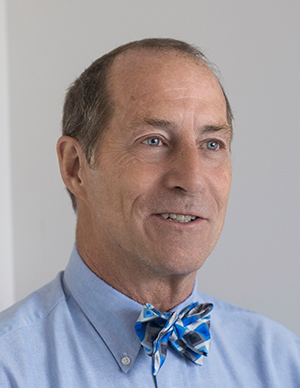Sen. John McCain, R-Ariz., who died Aug. 25, 2018, of brain cancer, was known as an American patriot and a political paradox. We asked George Mason University professors for their thoughts on his legacy.

Frank Shafroth
My most distinct memory of Sen. McCain came in 2010, when I prepped Oklahoma City Council member Mark Schwartz for his testimony before the Senate Commerce Committee, chaired by Sen. McCain. The issue: Whether a portion of radio spectrum vital to public safety ought to be reserved for state and local emergency responders—a position strongly opposed by the telecommunications industry, which was a huge contributor to the senator. His staff had let me know there was virtually no chance we would succeed.
I asked council member Schwartz not to speak from the prepared statement but to instead bring pictures of the Murrah Building in Oklahoma City. The building had been bombed in 1995, and 168 people were killed. The pictures were devastating. Because cities and counties had no access to the radio spectrum which could transmit through walls, the command vehicles outside the bombed building could not communicate to responders and rescuers inside the building. After seeing the photos and listening to Schwartz, McCain turned to his chief counsel—who had told me that under no circumstances would the committee act favorably—and simply said, “Make it happen.”
It did.
Director of the State and Local Government Leadership Center

Jack Goldstone
John McCain, war hero and GOP candidate for president, will go down in history as the last Republican of the Trump era with unimpeachable integrity and lasting devotion to the people and Constitution of the United States.

Meredith Lair
Following public disclosure of his cancer diagnosis, John McCain remarked that he has "been through worse." As someone who has read extensively on American prisoners of war in Vietnam, I can confirm that this was not a quip, a joke, or hyperbole. It was a fair assessment of the horrors McCain and hundreds of other Americans faced as prisoners of war during the Vietnam War.
While cancer yields its own devastation, McCain the cancer patient knew what was in store for him, and he had the blessings of family, friends and medical care throughout his illness.
McCain the prisoner of war had no idea how long his torment would last, a form of psychological devastation that compounded the isolation, physical abuse, torture, and starvation he endured at the hands of his North Vietnamese captors. The mental toughness and discipline required to survive such an experience served McCain well throughout his life.
If McCain had merely returned from captivity to private life, his death would still deserve our notice, and his life would still merit our unmeasured respect. That McCain survived his captivity and went on to live a life of purpose, public service, and commitment to family is nothing short of extraordinary.
Further, McCain was instrumental in normalizing relations between the United States and the Socialist Republic of Vietnam, a process that required him to compartmentalize his own memories of trauma in order to do what was best, not just for the United States but also for Vietnam. In this and other gestures, McCain was a model of decency, grace, and selflessness that we should all aspire to.
Associate professor, U.S. history

James Pfiffner
John McCain, among his many other impressive accomplishments, left a legacy of political courage by speaking out against torture in all of its forms.
University Professor

Edward Rhodes
Perhaps the most significant of John McCain’s contributions to U.S. national security and international peace and stability was made in 2001 and 2002 when he was one of the strongest, most effective advocates for the enlargement of NATO to include Slovakia, Romania, Bulgaria and Slovenia. It is easy to forget how controversial this decision was, and how strongly it was opposed by the bulk of the national security community and by the majority of American foreign-policy and national security-policy academics, including—I must be quick to admit—myself.
Sen. McCain was absolutely right. We were wrong.
The enlargement has proven to be one of the critical elements in stabilizing Europe, politically and economically, even while financial crises, doubts about the desirability of liberal democracy and troubling changes in military realities have created rough seas and heavy headwinds. As Sen. McCain correctly anticipated, the enlargement transformed the politics of Europe and the industrial world in a number of critical ways.
Professor, foreign policy and international relations

Bill Schneider
I believe one highlight of Sen. McCain's long and honorable career came when he ran for the Republican nomination in 2000. His chosen theme of ”straight talk” was a perfect response to then-President Bill Clinton. Had McCain won the Republican nomination, I think he would have easily won the 2000 election. But he made the mistake of insulting conservatives, and they ganged up against him in the nasty South Carolina Republican primary.
Bill Schneider
Professor of policy, government and international affairs
